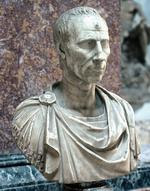
What is the origin and meaning of a Charlatan?
Truth be told my understanding was incorrect, but will not compound my embarrassment by going into details.
A charlatan is someone who tricks you out of your money by deceiving you. The vast majority of references relate to things medical. Promises are made that a specific medicine or potion will cure from virtually anything.So, the unsuspecting client buys the product and after a while finds out that it is useless, or virtually useless. This point of understanding is usually arrived at after the salesperson has disappeared.
Appears to relate to days long past when traveling salesmen moved from town to town selling their wares, and only returned after the dust had settled and the bad experience forgotten, just for the process to be repeated.
Words often used in definitions are swindled, cheated, quackery, shyster, mountebank, and impostor.
The following definition sums it all up nicely, both the meaning and the origin.
“A `charlatan` is a person practising quackery or some similar confidence trick in order to obtain money or advantage via some form of pretence or deception. The word comes from French `charlatan,` a seller of medicines who might advertise his presence with music and an outdoor stage show.”
More detail here
There is a difference between a charlatan and a confidence trickster. A charlatan has his way of operating that is usually fast and to the point aimed at a broad audience, targeting the gullible, ignorant or uneducated (my view), whereas a confidence trickster will have elaborate plans to deceive a targeted individual, after building up a relationship.
If you want to dig deeper, more detail at Wikipedia.
Image from Wikipedia
























